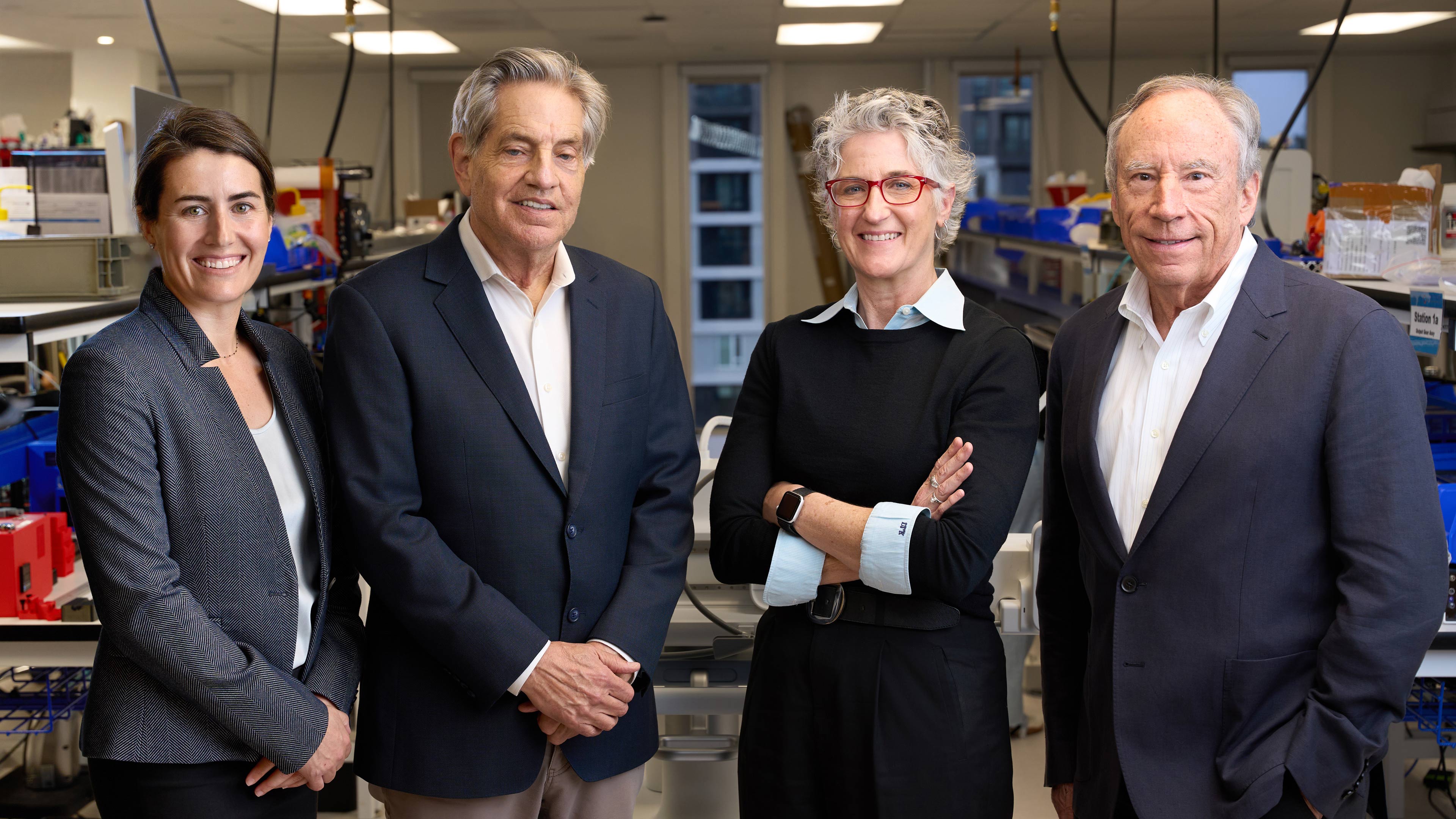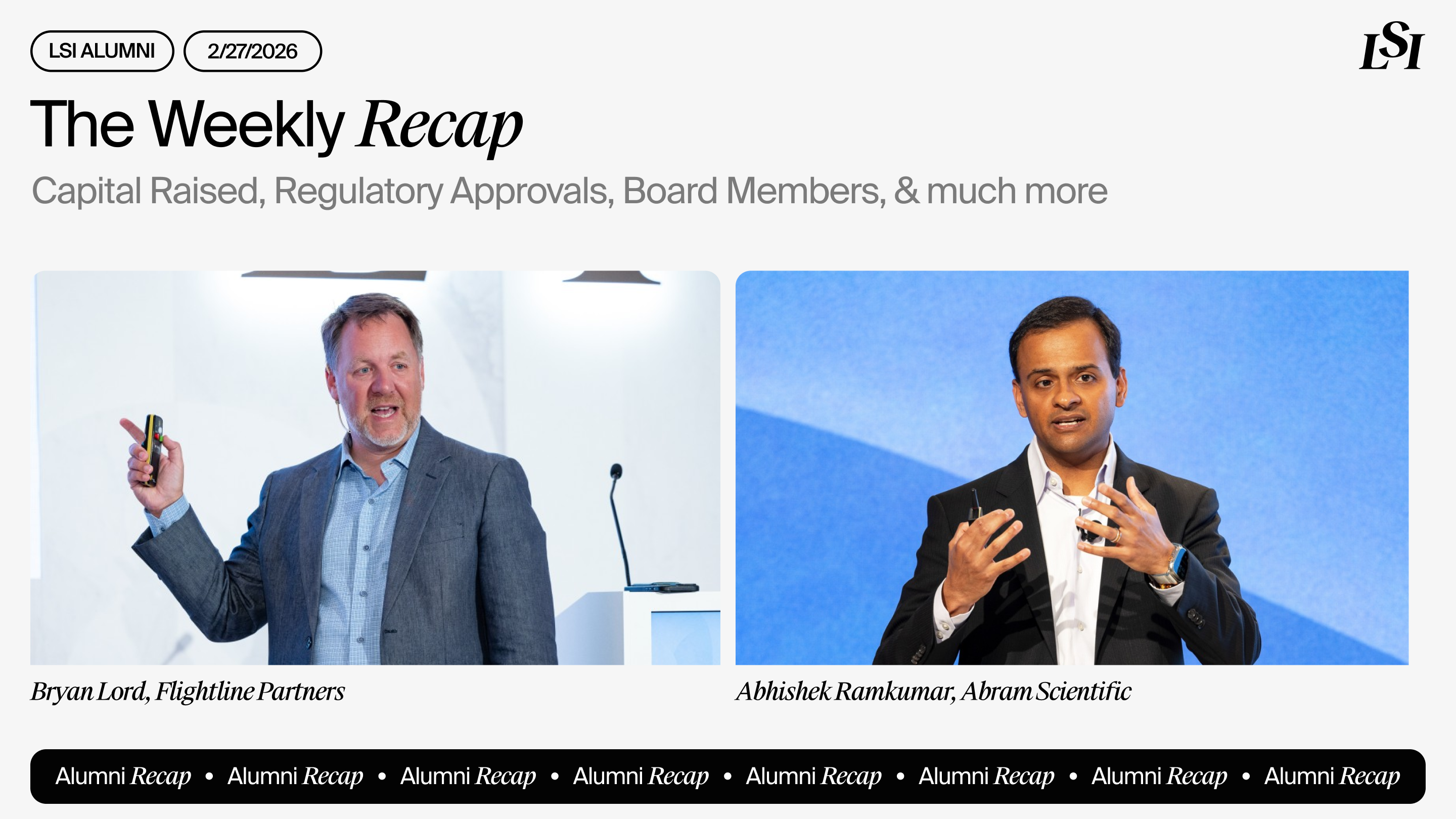
The Irish startup, led by Founder & CEO Andrew Cameron, is pioneering a new era in compression therapy for venous leg ulcers, aiming to improve patient outcomes and alleviate the burden on healthcare systems.
Origin Story
It all began in the BioInnovate Ireland program, a rigorous initiative inspired by Stanford Biodesign. Andrew Cameron, the CEO and Founder of FeelTect started this journey by spending 10 months deeply embedded in hospitals across Ireland and the Mayo Clinic in Rochester, USA.
During those 10 months, Cameron vividly recalls the moment that sparked the creation of FeelTect. "We spent weeks in wound care centers, watching patients come in with these terrible venous leg ulcers," he says. "Some had been suffering for over 30 years, treated but never truly healed." The traditional treatment involved cumbersome pneumatic sleeves that, while effective, were far from practical. "It was clear that these patients needed something better that could improve their quality of life without being so burdensome," Cameron reflects.
Returning to Ireland, Cameron and his team received guidance from Dr. Georgina Gethin, head of the School of Nursing at NUI Galway. "She told us, 'We don't need anything as complicated as those pneumatic devices. If we could just improve the traditional compression bandages, it would make a huge difference,'" Cameron recalls.
Thus, FeelTect was born with a clear mission to revolutionize compression therapy for venous leg ulcers through innovative, connected health technology. "We wanted to provide individualized treatments and optimize therapy for each patient's specific needs," says Cameron. This vision extends beyond merely treating ulcers more effectively; it aims to alleviate the significant burden on healthcare systems.
The Current Landscape
Venous leg ulcers continue to be a growing problem, particularly in aging populations and among individuals with comorbidities such as obesity. "In the last five years, the number of venous leg ulcers in the UK has doubled, and the healing rate has decreased by 20%," Cameron points out. This surge in cases is straining healthcare systems already burdened by limited resources and a shortage of trained nurses.
Compression therapy has long been the standard of care for venous leg ulcers, a condition resulting from the breakdown of valves in the leg veins. This therapy, which dates back over 500 years, helps restore blood flow and heal wounds. However, its application remains fraught with challenges. "Compression is applied totally blind. There's a 90% failure rate to achieve targeted pressure in clinical practice. Too tight is dangerous, too loose is ineffective," Cameron explains.
Nurses and caregivers often apply compression with little or no guidance leading to a lack of pressure measurement during application. "Only about 2% of patients are seen by trained tissue viability nurses," says Cameron. "Even if the pressure is applied correctly, it can lose up to 50% of its effectiveness within the first three days due to the reduction in swelling." This variability can lead to prolonged healing times and frequent recurrence of ulcers.
Current methods for measuring compression are rudimentary and unreliable. Some bandages have visual indicators, but these are often inaccurate. Other devices are handheld and tethered to a single probe, making them cumbersome and impractical for routine clinical use. "There are a couple of technologies on the market that attempt to measure pressure, but they're extremely inaccurate and provide no way of monitoring," Cameron explains. "They are impractical for routine clinical practice."
Inside the Innovation
FeelTect's groundbreaking technology, Tight Alright™, is set to revolutionize compression therapy for venous leg ulcers. At its core, Tight Alright is a wearable sensing device designed to measure and monitor the pressure applied during compression therapy, ensuring it is both precise and effective. Cameron describes it as "the first connected health technology for measuring and monitoring compression therapy. We’ve developed a wearable sensing device with a flexible arm that can be used with any existing compression product," he explains. "This helps implement the correct application by having three pressure-sensing regions on that wearable device. It transmits data to a mobile app so you can see the pressure in real-time."
Tight Alright goes beyond just measuring pressure. The accompanying digital platform provides opportunities for remote patient monitoring and supported self-management. "The really disruptive nature of our technology is through the digital platform," Cameron notes. "It allows for remote patient monitoring, supported self-management, and ultimately, with the data we generate, we can redefine standards of care." The platform collects data on pressure, bandage type, and patient tolerance, which is then used to refine and optimize treatment on an individual basis. This data-driven approach promises to reduce healing times, improve patient outcomes, and decrease the burden on healthcare systems.
Progress and Milestones
FeelTect is on the cusp of bringing its innovative, Tight Alright technology to market. “We’ve registered the technology with the FDA as a Class I 510(k) exempt product and also submitted for CE Mark as a Class I medical device. We’re just finishing our verification and validation testing. As soon as that’s completed, we’ll be ready for commercialization,” explains Cameron.
Clinical studies have demonstrated the effectiveness of FeelTect’s technology. Patients have shown remarkable improvements, with some experiencing significant wound reduction in a short period. “We’ve seen patients who had wounds for over 12 months achieve up to 38% wound reduction in just three weeks,” notes Cameron. These results highlight the potential of Tight Alright to dramatically improve patient outcomes and reduce healing times.
To date, the company has successfully secured funding to support its development and growth. FeelTect closed a €1.2 million Seed round in June 2022 and a €1.8 million pre-Series A round in December 2023. The company is now looking to open its Series A round in September 2024. “We’re raising a €3.5 million Series A to facilitate our market launch and continue our momentum,” says Cameron. This funding will support further clinical studies, scaling up production, and initial marketing efforts. “We already have a lot of demand for the technology. Once we complete our verification and validation testing, we have people ready to buy the technology,” he adds.
The funding will also allow FeelTect to explore additional features and applications for its technology. "We're looking at how we can model the data we’re collecting, adding new inputs like moisture of the dressing and other product parameters," Cameron explains. This data-driven approach will enable FeelTect to refine and optimize compression therapy further, potentially expanding its use to other conditions treated with compression, such as lymphedema.
Market Insights
Venous leg ulcers are the most common lower extremity ulceration and are responsible for costs and reduction in patient quality of life. It is estimated that 80 to 160 million people live with VLUs (~1% to 2% of the global population). Each year, over 2M people will develop VLUs.
Looking at the U.S. VLUs affect 1% to 3% of the population. The economic burden of the disease ranges throughout clinical literature. It is estimated that costs associated with VLU treatment are approximately $1 billion to $3.5 billion. The indirect costs of VLUs in the U.S. exceed $15 billion annually.
According to LSI’s Market Analysis and Projections (MAP) database, the global wound care market is projected to increase at a compound annual growth rate of 4.9%, from $23.1B in 2023 to $29.3B in 2028. The market is driven by demographic and epidemiological trends, with adults over the age of 65+ being more likely to develop VLUs due to their increased risk of chronic venous insufficiency.
As the global population continues to age and become unhealthier (i.e., increasing rates of obesity), the burden of VLUs will increase. There is a need for technologies that enhance the effectiveness of how chronic wounds are managed, improve patient outcomes, and lower the societal burden brought on by the management of these types of wounds.
Learn More About FeelTect
Andrew Cameron has been selected to present at LSI Europe ‘24 this September 16th-20th in front of hundreds of global medical technology companies. "It’s an exciting time for us. We’re on the cusp of many things and look forward to showcasing our achievements at LSI," Cameron concludes. Join us in welcoming him to the event in Sintra, Portugal, where he will share the latest updates on FeelTect’s technology and their vision for the future of wound care.
Stay tuned for more medtech industry insights and updates on top medical device companies like FeelTect, every Sunday on our website and in your inbox.
17011 Beach Blvd, Suite 500 Huntington Beach, CA 92647
714-847-3540© 2026 Life Science Intelligence, Inc., All Rights Reserved. | Privacy Policy










